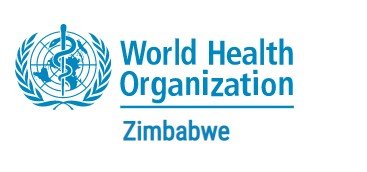The recent surge in cholera cases has placed immense pressure on healthcare facilities, particularly the Beatrice Road Infectious Disease Hospital (BRIDH) in Harare. To alleviate this strain and ensure accessible treatment for all, the Ministry of Health and Child Care, Harare City Council with the generous support of the World Health Organization (WHO), has started decentralizing cholera treatment centers (CTC). Two new cholera treatment centers (CTCs) are now operational, strategically located at Highfields and Budiriro polyclinics. These facilities, with 10-bed capacities and supplies for 100 cases (40 severe, 60 moderate), bring vital medical care closer to the most affected communities. Recommended water and sanitation (WASH) facilities have also been installed at both centers.
“Ideally cholera cases should be managed at source and people have been coming to BRIDH where we normally manage severe cases and this has overwhelmed the facility,” said Dr Prosper Chonzi, Harare City Health Services Director.
“This process of decentralization of services is really key to improve quality of care,” he said.
By creating additional treatment centers closer to affected communities, patients suffering from cholera will no longer face long waiting times and overcrowded facilities. This translates to quicker diagnosis, faster access to life-saving treatment, and ultimately, better patient outcomes. In addition, decentralized centers will allow for more efficient case management, reducing the risk of further transmission within the densely populated urban areas. Training for the health personnel manning the centers has also been done.
The new centers will also serve as hubs for health education, offering residents vital information about hygiene practices, safe water sources, and proper sanitation measures. This empowers communities to play an active role in curbing the spread of the disease and strengthens their long-term resilience against future outbreaks.
The construction of the Highfields and Budiriro CTCs brings the total number of WHO supported centres to nine (9), a total of 130 beds distributed. These treatment centres are being established or upgraded in high cholera burdened areas. In Manicaland, two centres were upgraded at Chiadzwa and Zvipiripiri Rural Health Centres, one at Pore Pore clinic in Masvingo, and one in Harare at BRIDH. Similarly in Harare, support has been provided to St Mary’s Polyclinic, Chitungwiza Central hospital and Stoneridge Polyclinic. Funding for these activities is coming from the Health Resilience Fund, co-funded by the European Union, Gavi, The Vaccine Alliance and the Governments of Ireland and the United Kingdom.
WHO support extends beyond these new centers. They expanded bed capacity at Glenview Polyclinic CTC and improved patient care standards at Chitungwiza General Hospital CTC. While BRIDH remains the city’s mainstay for infectious diseases, including cholera, the decentralization initiative offers much-needed relief and improved access to care for affected communities.
“This initiative is a testament to the collaborative efforts of the government, healthcare providers, and international partners in tackling the cholera outbreak. By prioritizing accessibility and community engagement, the decentralization of treatment centers offers a promising solution for curbing the spread of the disease, reducing mortality and ensuring the well-being of Zimbabweans,” said Professor Jean-Marie Dangou, WHO Representative to Zimbabwe.
Distributed by APO Group on behalf of World Health Organzation (WHO) – Zimbabwe.









